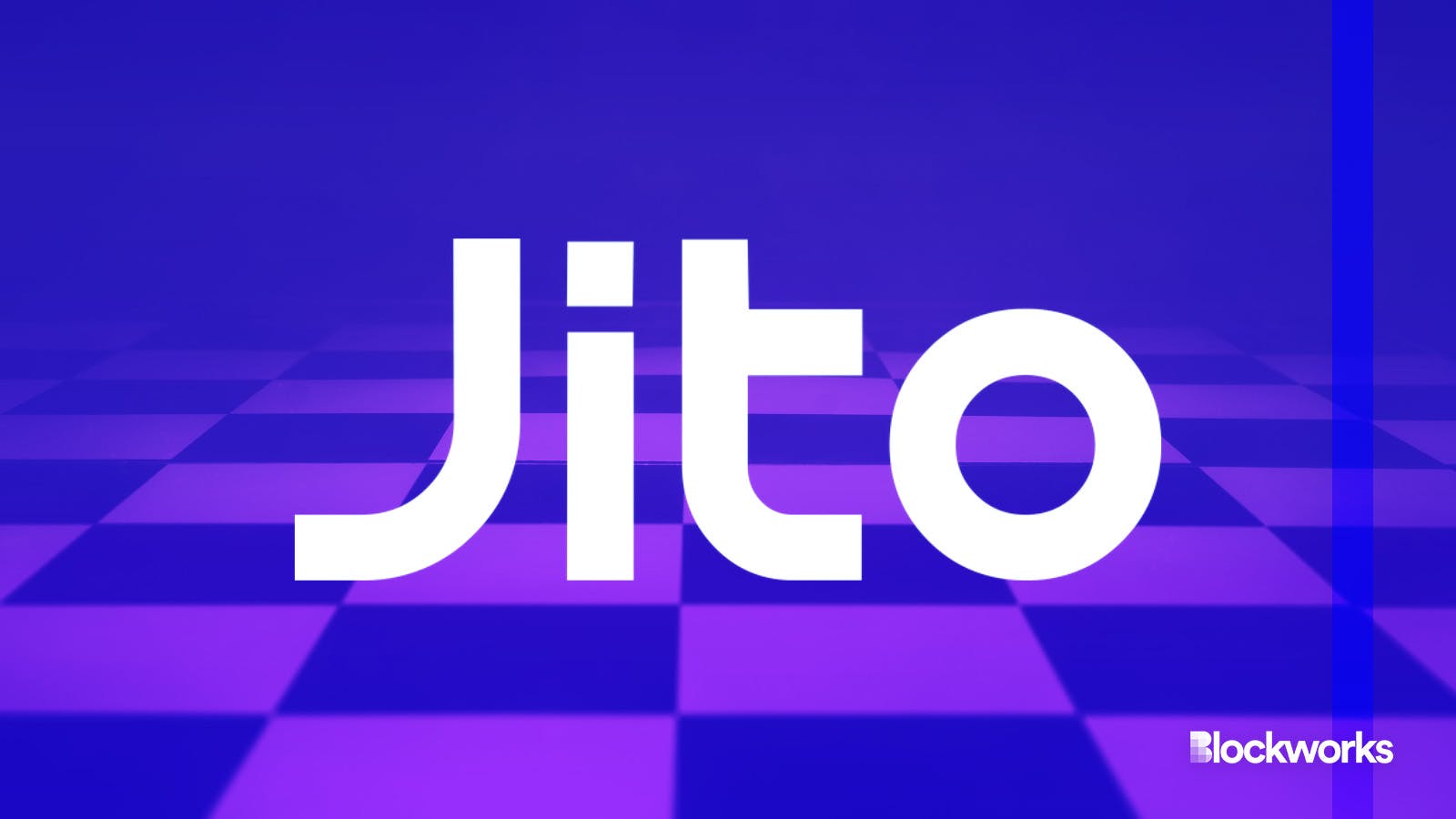Jito Labs ends mempool functionality citing impact on Solana users
Telegram bot users may come out as the latest winners for Jito’s mempool suspension

Jito Labs and Adobe Stock modified by Blockworks
Solana MEV startup Jito Labs said on Friday that it will suspend mempool functionality offered by the Jito Block Engine following an increased amount of sandwich attacks on the Solana blockchain.
MEV sandwich attacks occur when MEV searchers profit from an asset’s price volatility. The searcher jumps ahead of a large purchase order that they know will raise the asset’s price and then sells it immediately following a victim’s purchase, profiting from the user’s swap.
Jito Labs’ decision to pause was made after “deliberate conversations with the Jito Labs team and key Solana ecosystem stakeholders.” The move was met with mixed responses from industry participants.
Read more: MEV: Who should profit from a protocol’s economic activity?
On Ethereum, validators create blocks by collecting transactions from a mempool — a staging area before a block is constructed and confirmed on-chain. Based on how these transactions are ordered in the block, validators can earn additional revenue, referred to as maximum extractable value, or MEV for short, often at the expense of retail traders.
Mempools are built into Ethereum by design, but this is not the case for Solana, where the block processor is known ahead of time. To allow validators to capture MEV on Solana, startups like Jito Labs created infrastructure to introduce mempool functionalities.
Blockworks research analyst Dan Smith noted in a post on X that MEV had been the “entire growth story for JTO,” implying that by suspending mempool functionality, it could struggle to drive value to JTO token holders.
Jito’s native token (JTO) is for community members to participate in governance.
According to CoinGecko, JTO is trading at $2.72 at the time of this writing, down 1.6% over the past week.
“One party that this decision potentially benefits is Telegram bot users, who frequently set a high slippage amount to get their swap through but then experience the maximum slippage due to them getting sandwiched,” Blockworks research analyst Ren Yu Kong said. “With the removal of Jito’s mempool, this is much less likely to occur.”
Read more: Solana has a spam problem. Can it be fixed?
However, Kong notes that without Jito’s mempool, searchers and arbitragers are likely to be incentivized to spam the network, resulting in failed transactions and wasted validator resources.
“With better execution, users get worse transaction inclusion guarantees as searchers and participants are once again incentivized to spam transactions for the maximum probability of fastest transaction inclusion,” Kong said.
Jito did not respond to Blockworks request for comment before publish time.
Updated April 25, 2024 at 8:53 am ET: Clarified that MEV rewards are not presently available for JTO token holders.
Get the news in your inbox. Explore Blockworks newsletters:
- The Breakdown: Decoding crypto and the markets. Daily.
- 0xResearch: Alpha in your inbox. Think like an analyst.
- Empire: Crypto news and analysis to start your day.
- Forward Guidance: The intersection of crypto, macro and policy.
- The Drop: Apps, games, memes and more.
- Lightspeed: All things Solana.
- Supply Shock: Bitcoin, bitcoin, bitcoin.






